
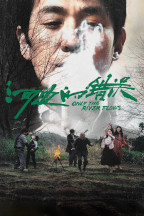
Hébian de cuòwù
China 2023
Genre:
Crime, Thriller
Director:
Wei Shujun
Cast:
Zhu Yilong
Chloe Maayan
Hou Tianlai
Tong Linkai
Kang Chunlei
Wang Jianyu
Zeng Qi
Huang Miyi

Only the River Flows
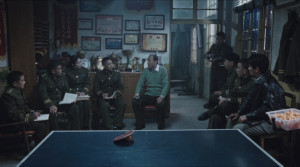
Story: Ma Zhe (Zhu Yilong) is a policeman during the nineties and has to solve the murder of an old woman in a small town by a river. During his investigation, it turns out that after the death of her husband, the woman adopted a mentally impaired man (Kang Chunlei), who the residents describe as harmless. When the "village idiot" is found, Ma does not believe that he is guilty either. The handbag, which was found at the scene, contained a music cassette on which the detectives can also hear a woman's voice. The woman is soon found, and further investigations reveal that before a little boy found the body, there were actually others who had discovered the body too. Each one of them has a different reason why he/she did not report the dead woman to the police. One of these people could be the murderer, and soon there is another dead person. Ma gets pressured more and more by his boss, while at home his wife (Chloe Maayan) has become pregnant, so that he also has to handle the additional family stress. Slowly but surely, however, the clues about Ma's case lead him closer to the truth. At least that's what he thinks, because the web of lies and secrets in the case is not easy to get through...

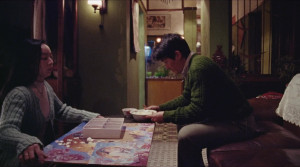
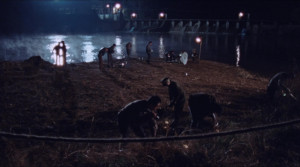

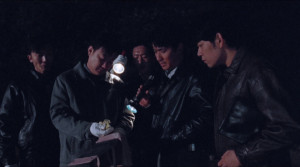
Review: "Only the River Knows" is a fascinating mixture of an art-house flick and a film noir/thriller occasionally criticizing the China of that time, but also today's China. Unlike other sophisticated dramas, the movie also works very well on an entertainment level, even though there are constantly a few scenes in which you can clearly see the artistic side of the movie. So, every now and then you are left with some unanswered questions. That aside, the movie is impressive from a visual point of view. Since it was shot almost completely on 16mm, it actually looks like it comes from the 90s. Narrative-wise, the movie also zigzags quite a lot leading you on a merry chase but also giving you satisfying explanations for things that didn't seem to make much sense at first. At the same time, the story doesn't neglect its characters either, so the events don't feel unnecessarily distant, a problem that movies of this kind usually have.
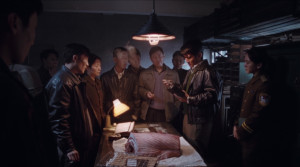
The story is based on a novel by bestselling author Yu Hua. The mystery of the murder in the small town immediately draws you in and we quickly get our first suspects. Of course, the big question remains, why the crime scene almost seemed like a busy train station, but no one reported the body. The reason for that is the fact that even though China was slowly opening up to the world at the time and changes were underway - the various demolished houses are a visual clue for this -, in reality, there were some things that you simply kept to yourselves. For example, we get a forbidden love, or someone who has already attracted attention with "perverted" behavior before. China's accepted norm therefore makes the investigator's work harder and it is obvious that this criticism can also be transferred to the present day. Traditionalism and the need to adhere to norms drive some characters to desperation, which is why the movie also works as a drama.

However, the investigator does not stay as two-dimensional as you might have expected at the beginning. His wife becomes pregnant and the question of whether she wants to keep the child, even though it might have a disability, leads to a few really outstanding scenes. Zhu Yilong ("Lighting Up the Stars") manages to give a great performance and with that he also carries the entire movie. Other characters unfortunately turn out a bit flatter, like his partner, who you think might be a little dim-witted at first, but then you realize that he is just a bit strange. Detective Ma's wife, on the other hand, does not get enough screen time, because actress Chloe Maayan has a few strong moments, especially when the wife (also as a political commentary) makes it unmistakenly clear to her husband that it is her body and that she is the one making the decision. Detective Ma then grabs some pieces of an unfinished puzzle of his wife and flushes them down the toilet. In small scenes like these, not only do some special traits of the characters shine through, but we also get a little bit of humor.
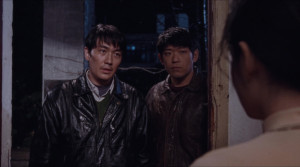
As a thriller, "Only the River Flows" also reminded me of the Korean movie "Memories of Murder". This is not because the police prove to be particularly incompetent, Ma even proceeds quite analytically, and the story therefore develops without unnecessary coincidences or evidence falling into the detective's lap. It's more because of the cinematography. It constantly rains in the scenes, the ground is muddy and even when it doesn't pour down, moisture from the river seems to blow through the air. With that the images always create the feeling as if you were watching a 90s movie. And the sets are also nice to look at. An abandoned cinema becomes the new office of the investigators, for example, and the movie medium is also celebrated by connecting clues between projectors and film reels. Later, there is a dream sequence that is wonderfully innovative and also shows off excellent camera work.

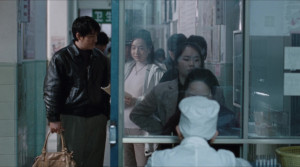
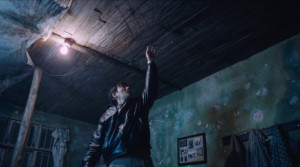

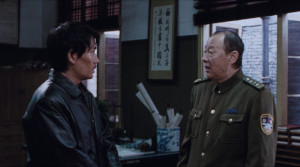
Unfortunately, the movie runs out of steam towards the end and gets more lost in its art-house aspirations. The ending is also a bit strange. The successful mixture of "neo-noir" and sophisticated drama doesn't seem as balanced as it was before, and everything simply isn't as well-rounded anymore. Of course, there are also some aspects that viewers are supposed to think about for themselves, interpreting things on their own, but in the end, it creates a noticeable break that could have been avoided. Nevertheless, "Only the River Flows" is far above average in all other respects and therefore deserves a recommendation. The way the movie is comparatively easy to get into, the great cinematography, and the performances, all this is quite convincing. What's particularly fascinating is the fact that the movie might as well be from the 90s which creates a truely special atmosphere.

Disclaimer










